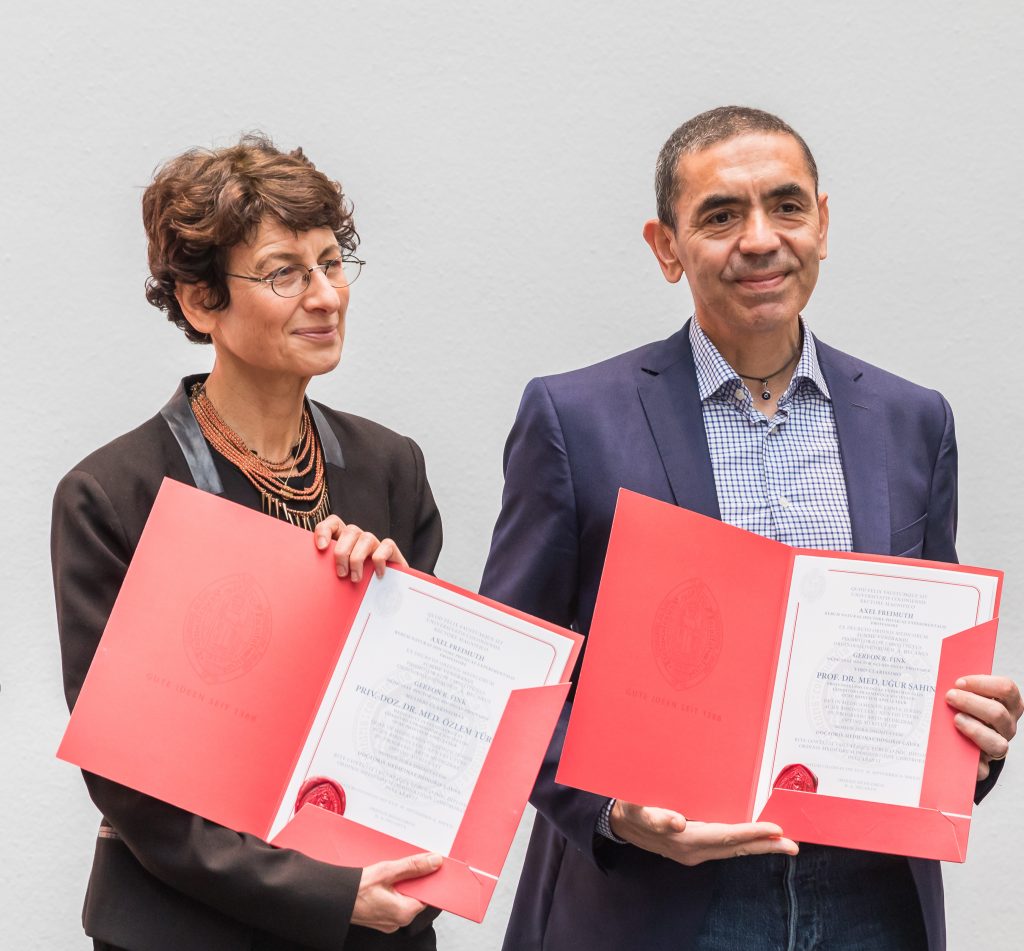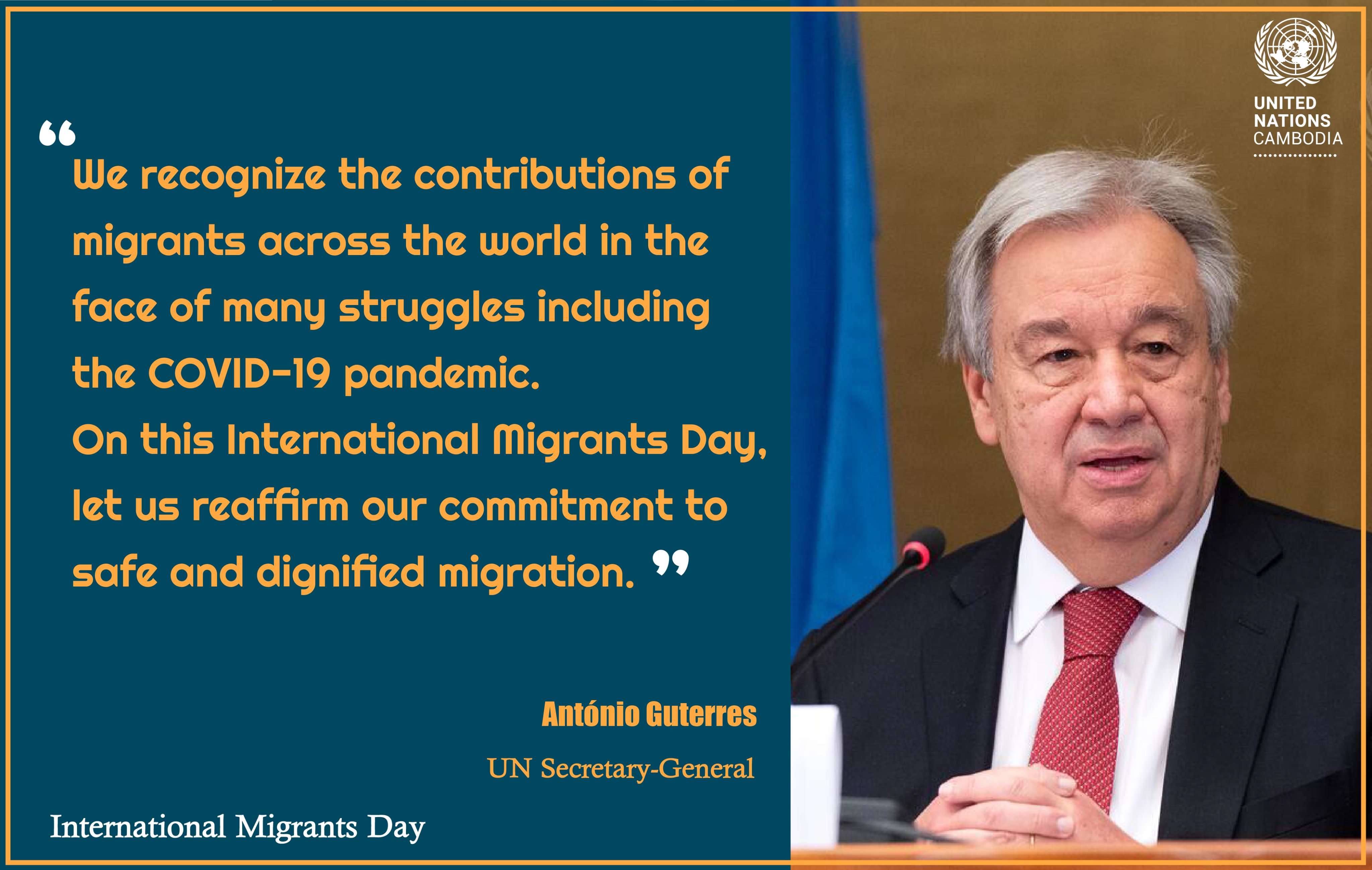
There were 281 million international migrants in 2020, according to the latest available UN count, and represented 3.6 percent of the global population.
In several advanced countries including the United States, immigrants play a vital role in carrying out the research necessary to combat the coronavirus pandemic. In the United States, a couple of Turkish origins were instrumental in making the Pfizer vaccine to protect against COVID-19, the contagious disease caused by the virus.
According to previous studies, immigrants, particularly those from the Muslim majority countries make up a large proportion of researchers in the U.S. health areas.
President Joe Biden has reversed several measures of his predecessor Donald Trump’s administration that sought to discourage immigration to the United States, a country of immigrants, and founded on the principles of liberty and equal opportunity for all.
While a majority of Americans recognize the key role immigrants play in the digital innovation, academic and scientific advancement, health and medicine areas, Muslims continue to see as a threat by a particular segment of the American population, who air their antagonism to the immigrants’ way of life on political and media platforms.
Worldwide, the United Nations said Friday, people on the move “continue to face widespread stigmatization, inequalities, xenophobia, and racism.”
On the eve of International Migrants Day, United Nations Secretary-General Antonio Guterres has said that expressing solidarity with migrants on the move, “has never been more urgent.”

“Today, more people than ever live in a country other than the one where they were born. While many individuals migrate out of many others leave home out of necessity.
“Migrant women and girls face a heightened risk of gender-based violence and have fewer options to seek support”, he added.
With borders closed because of the pandemic, Guterres remembered that many migrants are stranded without income or shelter, unable to return home, separated from their families, and facing an uncertain future.
“Yet throughout the pandemic, migrants have enriched societies everywhere and are often on the frontlines of the pandemic response, as scientists, healthcare professionals, and essential workers”, he said.
The theme for the 2021 International Day, is Harnessing the potential of human mobility.
For the UN chief, the world needs more effective international cooperation and a more compassionate approach to accomplish that goal.
“This means managing borders humanely, fully respecting the human rights and humanitarian needs of everyone, and ensuring that migrants are included in national COVID-19 vaccination plans”, he explained.
It also means recognizing pathways for regular entry and addressing the drivers of migration, such as deep inequalities and human trafficking.

Next year, the International Migration Review Forum will take stock of progress in implementing the milestone Global Compact for Safe, Orderly, and Regular Migration.
This “is an opportunity to advance efforts to ensure the full inclusion of migrants as we k to build more resilient, just and sustainable societies,” the UN chief said.
Guterres also welcomed the pledging campaign launched by the United Nations Migration Network to strengthen the Global Compact and encourage Member States and others to get involved.
This year, International Migrants Day falls almost exactly 70 years since the historic Brussels conference that led to the establishment of the International Organization for Migration (IOM).
In his message, IOM Director General, Antonio Vitorino, recalled the stark images of closed borders and separated families, amidst COVID-driven economic disarray, that have become more common in recent years.
According to him, the global pandemic has also spawned a new wave of anti-migrant sentiment and the increasing instrumentalization of migrants as political pawns.
“Both are unacceptable”, Vitorino said.
For him, the response to the pandemic has also underlined the importance of migrant workers in keeping everyone safe.
“The positive social and economic impact in the countries where they reside, and the $540 billion remitted last year to communities in lower and middle-income countries, are measures of the industry, entrepreneurship, and community from which we all benefit”, he explained.














